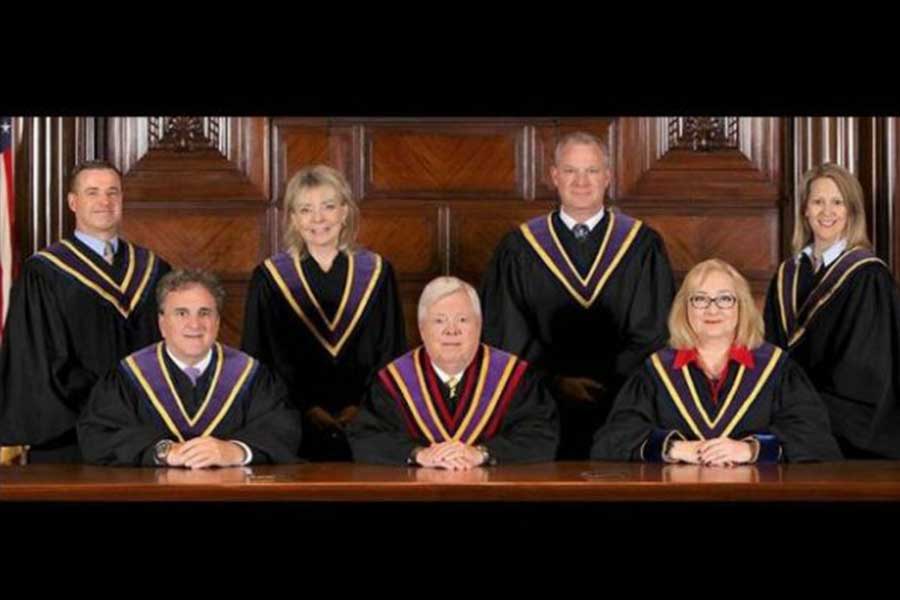A lesbian who claims she’s being unfairly denied parental status is asking the Pennsylvania Supreme Court to rule that an individual can be a parent even without adopting a child or having a biological relationship.
On May 15, during oral arguments in the case of C.G. vs. J.H., appellant’s attorney Tiffany L. Palmer told the state’s highest court that such a ruling would strengthen the rights of all children born via assisted conception, including children born into LGBT families.
The highly contentious dispute involves two women who lived together in Florida between 2001-12. In 2006, J.H. gave birth to J.W.H. with the help of an anonymous sperm donor. About six years later, J.H. relocated to Pennsylvania with the boy, and has since denied C.G. visitation. In court papers, the women disagree on whether J.W.H. was born into an “intact family” headed by C.G. and J.H.
Pennsylvania’s custody statute doesn’t define the term “parent.” Courts have limited the definition to a person who is biologically related to a child or who has adopted a child.
Since C.G. doesn’t fall into either category, two lower courts have denied her status as J.W.H.’s parent.
J.W.H. lives in Centre County. C.G. wants the ability to argue in Centre County Common Pleas Court that she’s his mother, maintaining it’s in the child’s best interest for her to share custody.
During oral arguments, Palmer told the court that J.W.H. was born into a family headed by C.G. and J.H. via assisted conception. “The child was born into a family and [C.G.] held out the child as her child after his birth.”
Palmer reiterated that a clarifying ruling from the justices would be particularly helpful to LGBT families, since they’re often formed through assisted conception and the state’s custody statute doesn’t address assisted-conception parentage.
“Same-sex couples are disproportionately affected because of the biological restrictions that they have,” Palmer said. “They have to turn to donors to conceive. For opposite-sex couples, it affects those few couples who face infertility issues or other medical conditions that cause them to turn to assisted reproduction.”
But Julia C. Rater, an attorney for J.H., argued that J.H. was a single parent when J.W.H. was born. She told the court that C.G. didn’t intend to be his parent or act like his parent. Rater also said Centre County Common Pleas Judge Pamela A. Ruest didn’t make an error of law when denying C.G. legal standing to seek shared custody of J.W.H. in 2016.
Several of the justices appeared sympathetic to Palmer’s arguments. Justice Kevin M. Dougherty said if C.G. were a man, she wouldn’t have been denied standing to seek custody of J.W.H.
Justice Christine L. Donahue said Ruest may have used an incorrect legal analysis when denying C.G. a custody hearing. Donahue said Ruest apparently focused too much on the time C.G. and J.W.H. were apart, rather than the time they spent together.
Justice David N. Wecht echoed Donahue’s concerns. “If the legal standards [applied by Ruest] were incorrect, it doesn’t matter how compelling your facts are,” Wecht told Rater. “It has to go back [to Ruest] to be tried on standing on the correct legal standard.”
After the hearing, Palmer said she was “cautiously optimistic” that the justices would issue a ruling favorable to C.G.
“This is an amazing opportunity for the justices to do something that will be very helpful to LGBT families in Pennsylvania,” Palmer told PGN.
C.G., 58, is a registered nurse living in Boca Raton, Fla. She has two children from a previous marriage. After the hearing, C.G. told PGN she tried to avoid litigation.
“I never wanted this to happen. Going to court was the last thing I wanted to do,” she wrote in an email. “But [J.W.H.] should not be deprived of a relationship with either of his parents. What’s in the best interests for [J.W.H.] is what it’s all about for me. It’s in his best interest to have a relationship with both his parents, with his sisters, with his grandparent. I’m his mother; he’s my son. Why would I do this if I didn’t have his best interests at heart?”
C.G. said she intended to be J.W.H.’s mother. “I wanted to have this child. I wanted to have [J.W.H.]. We even talked about having one of my family members be a sperm donor, so that I could have a biological connection to the child.”
C.G. last saw J.W.H. in 2014.
“I have asked to visit. I send him packages every single month and have for five years. It has been my only way to try to stay in contact. We had such a special and sweet bond for the nearly six years that I coparented him.”
J.H. and her attorneys had no comment for this story.
A ruling is expected within the next few months.
